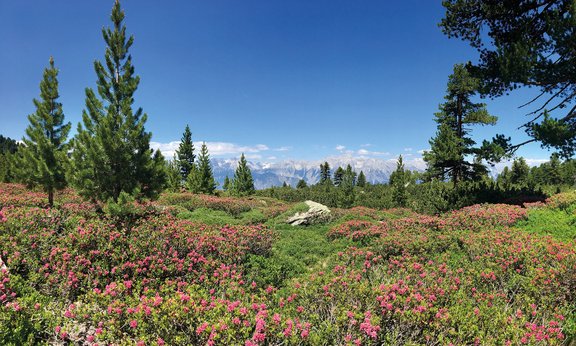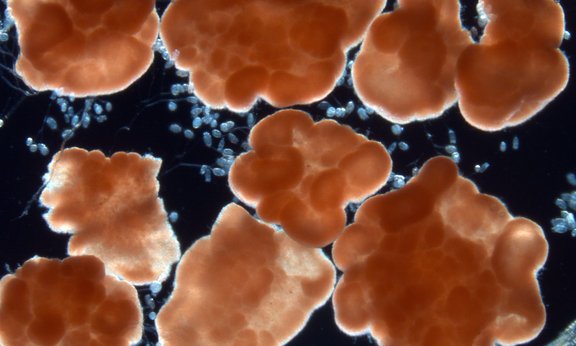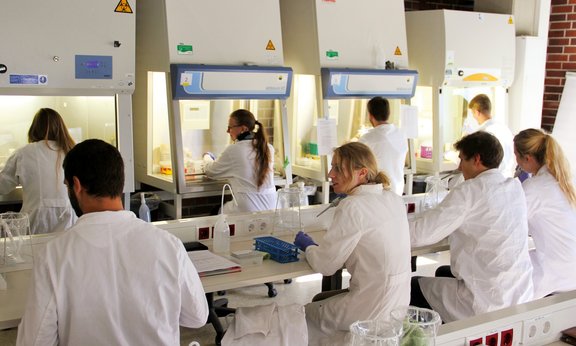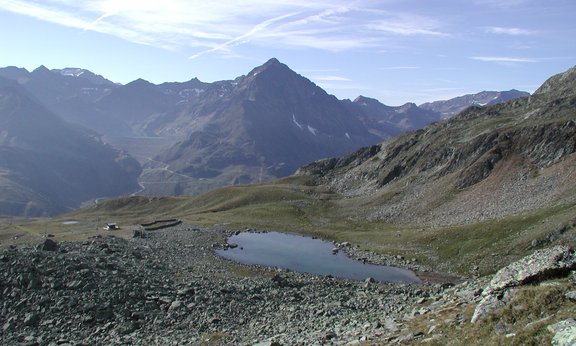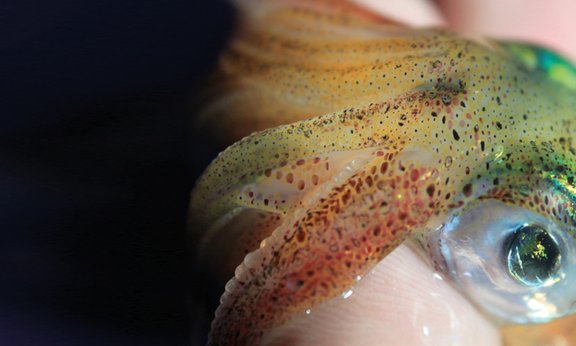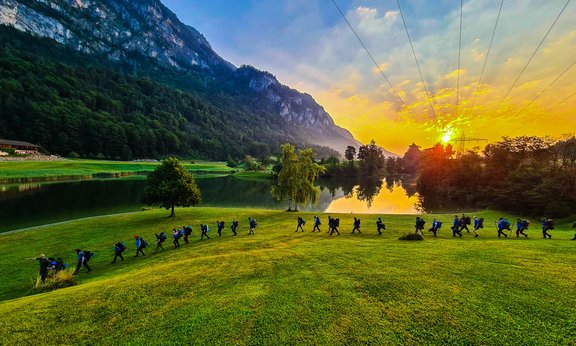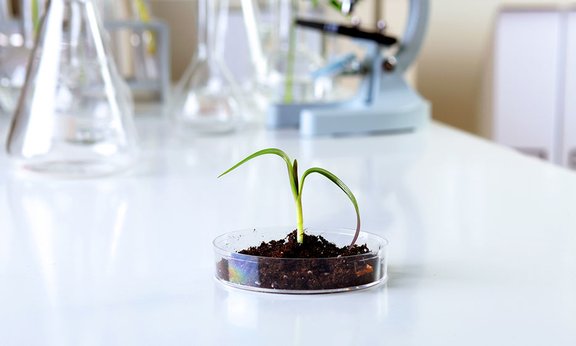Bachelor’s Programme Biology
Are you interested in all core areas of biology and want to learn to understand nature?
The Bachelor’s Degree Programme in Biology offers a broad education in the main branches of biology. The students acquire theoretical knowledge and practical skills through extensive laboratory work and field experience. With this basic education the graduates know how to detect, analyse and assess biological systems and their interaction with their environment at the molecular, organism and ecosystem level.
Study Code
UC 033 630
Supplemental Examination
The supplemental examination in Biology and Environmental Protection is dropped
- if a minimum of four hours in natural sciences, biology or biology in conjunction with other teaching areas per week were successfully attended at a secondary school after the 8th school grade.
- if the knowledge from the fields of natural sciences, biology or biology in conjunction with other teaching areas are already part of the admission procedure prior admission (concerns all admission processes acc. to §65a and §§71b, c, d UA 2002).
FAQ
Graduates are able to elaborate, evaluate, assess and implement scientific developments in the fields of biology and to apply them in interdisciplinary contexts. They possess theoretical and methodological problem-solving skills as well as multidisciplinary skills, such as learning strategies, literature research and information retrieval, and scientific communication.
The Bachelor's Programme Biology, incorporating the fundamentals of the natural sciences (chemistry, biochemistry, physics) and general abilities (multidisciplinary skills, laboratory methods, field methods, experimental design, statistics), offers wide-ranging instruction in the individual branches of biology (botany, zoology, microbiology, ecology and molecular biology).
The modules convey both theoretical knowledge, based on extensive laboratory and field experience, and necessary practical skills. Students are made familiar with scientific writing and research and are able to develop problem-solving skills. Individual specialization may be pursued through the selection of specific elective modules from the branches of biology, allowing students to adapt their programme to meet individual occupational goals.
The Bachelor's Programme Biology specifically prepares students for activities in private and public institutions in the fields of agriculture and forestry, environment and nature conservation, landscape planning and management, pharmaceutics, medicine, public administration, museums and libraries, botanical and zoological gardens, and nature reserves.
Graduates tracking: Shows which occupational fields students enter after graduation
Faculty of Biology Examination Office Information for students with disabilities
Curriculum
From the field
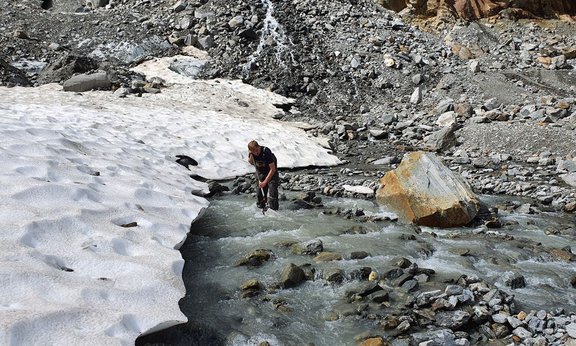
Am Gletscher: Mücken geben Einblick ins Ökosystem
Eingebettet zwischen schroffen Felswänden sind die Eismassen von Gletschern ein höchst unwirtlicher Lebensraum. Dennoch tummeln sich in ihrem Schmelzwasser Mückenlarven, genauer: die Vorstufen der Zuckmücken. Ein Forschungsprojekt in den Ötztaler Alpen macht sich das Vorkommen der Tierchen zunutze, um Rückschlüsse auf das Ökosystem und dessen Gefährdung durch den Klimawandel zu ziehen.
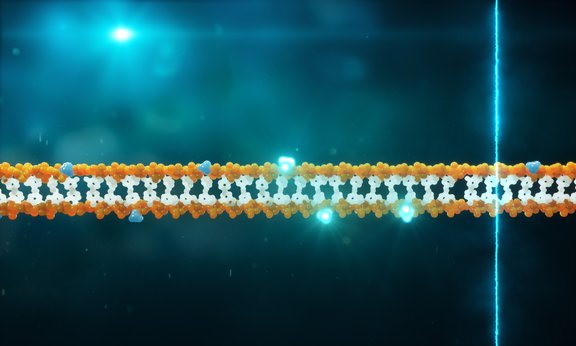
Krebs: Rauchen und E-Zigaretten verändern Zellen
Raucher:innen und Konsument:innen von E-Zigaretten teilen nicht nur eine Gewohnheit, sondern auch ähnliche, mit Krebs assoziierte Veränderungen an Zellen, so eine neue Studie von Wissenschaftler:innen der Universität Innsbruck um Chiara Herzog und Martin Widschwendter, veröffentlicht in der Fachzeitschrift Cancer Research.
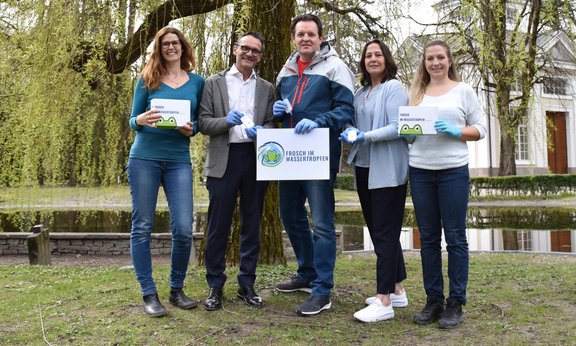
Frosch im Wassertropfen: Wissenschaft zum Mitmachen
Noch bis Ende März können sich interessierte Bürgerinnen und Bürger zur Teilnahme am Forschungsprojekt „Frosch im Wassertropfen“ anmelden. Mittels Umwelt-DNA werden dabei österreichweit die in Gewässern vorkommenden Amphibienarten erhoben. Das Land Tirol unterstützt das Projekt mit über 25.000 Euro.
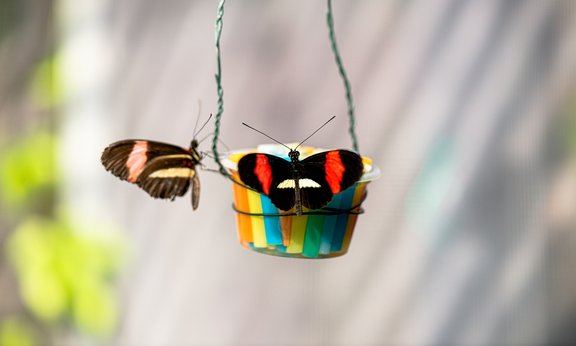
Schmetterling-Gen steuert Partnerpräferenz
Ein bei der Kreuzung zweier Schmetterlingsarten weitergegebenes Gen ist verantwortlich dafür, dass Männchen beider Arten Weibchen mit roten Mustern bevorzugen. Forschende um START-Preisträger Markus Möst zeigen in einer aktuellen Studie in Science, dass Hybridisierung bei der Evolution von Verhaltensweisen eine wichtige Rolle spielen kann.
Related studies
Bachelor’s Programme
Biology
The Bachelor’s Degree Programme in Biology offers a broad education in the main branches of biology. The students acquire theoretical knowledge and practical skills through extensive laboratory work and field experience. With this basic education the graduates know how to detect, analyse and assess biological systems and their interaction with their environment at the molecular, organism and ecosystem level.
Detailed Information Apply Online
Please note: the language of instruction for this programme is German.
Info
Bachelor of Science (BSc)
Duration/ECTS-Credits
6 semesters/180 ECTS-Credits
Mode of Study
Full-time
Language
German
Requirements
Secondary school completion certificate or equivalent, language certificates
Supplemental Examination
Biology and Environmental Protection
Curriculum
Information on the curriculum
The right degree for me?
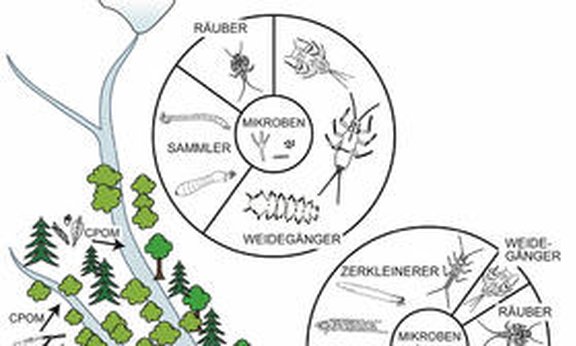
Highlights
- obtain basic education in the main branches of biology
- gain theoretical knowledge and practical skills
- study specific topics and functions of biology
- work at the molecular, organism and ecosystem level following high professional standards
- develop innovative solutions

Post graduation
Master's Programmes
- Botany
- Ecology and Biodiversity
- Environmental Management of Mountain Areas (EMMA)
- Microbiology
- Molecular Cell and Developmental Biology
- Peace and Conflict Studies
- Pharmaceutical Sciences - Drug Development and Regulatory Affairs
- Zoology
Continuing Education Programmes
Career Service (in German)
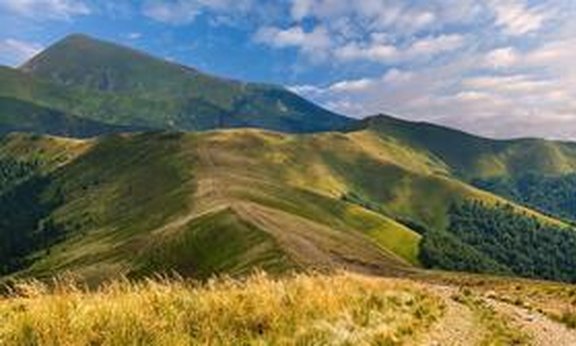
My career
My career opportunities
- work with government agencies and public authorities
- positions in biotechnological companies
- employment in botanical gardens and zoos
- work in agriculture and forestry, landscape ecology
- positions in the food and cosmetics industry
- work in life sciences, medicine, medical technology and pharmaceutical industries
- employment in museums, scientific collections and libraries
- work in quality assurance and management
- jobs in the field of environmental protection and conservation
- employment in environmental and outdoor education
Graduates tracking: provides information on the occupational fields students enter after graduation

